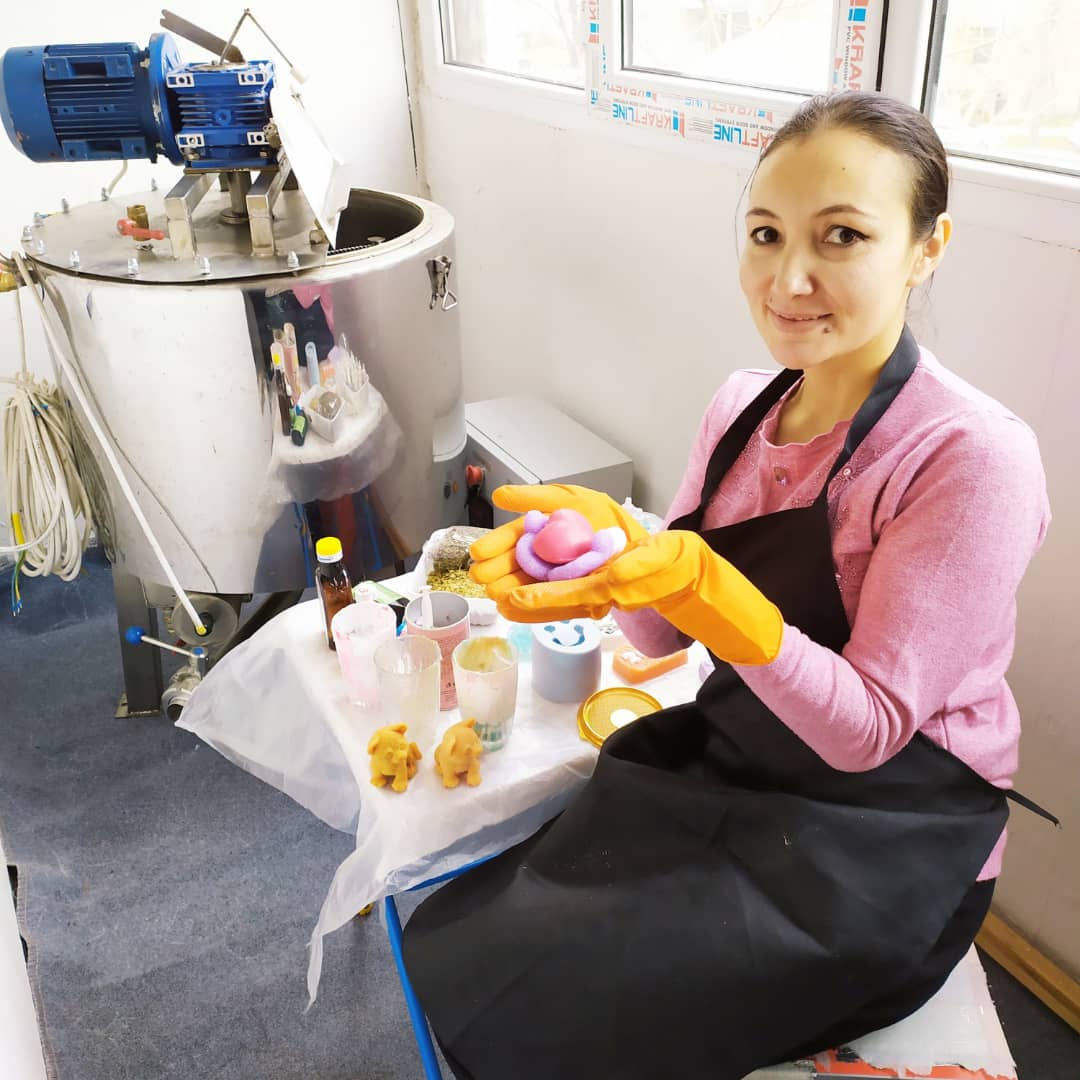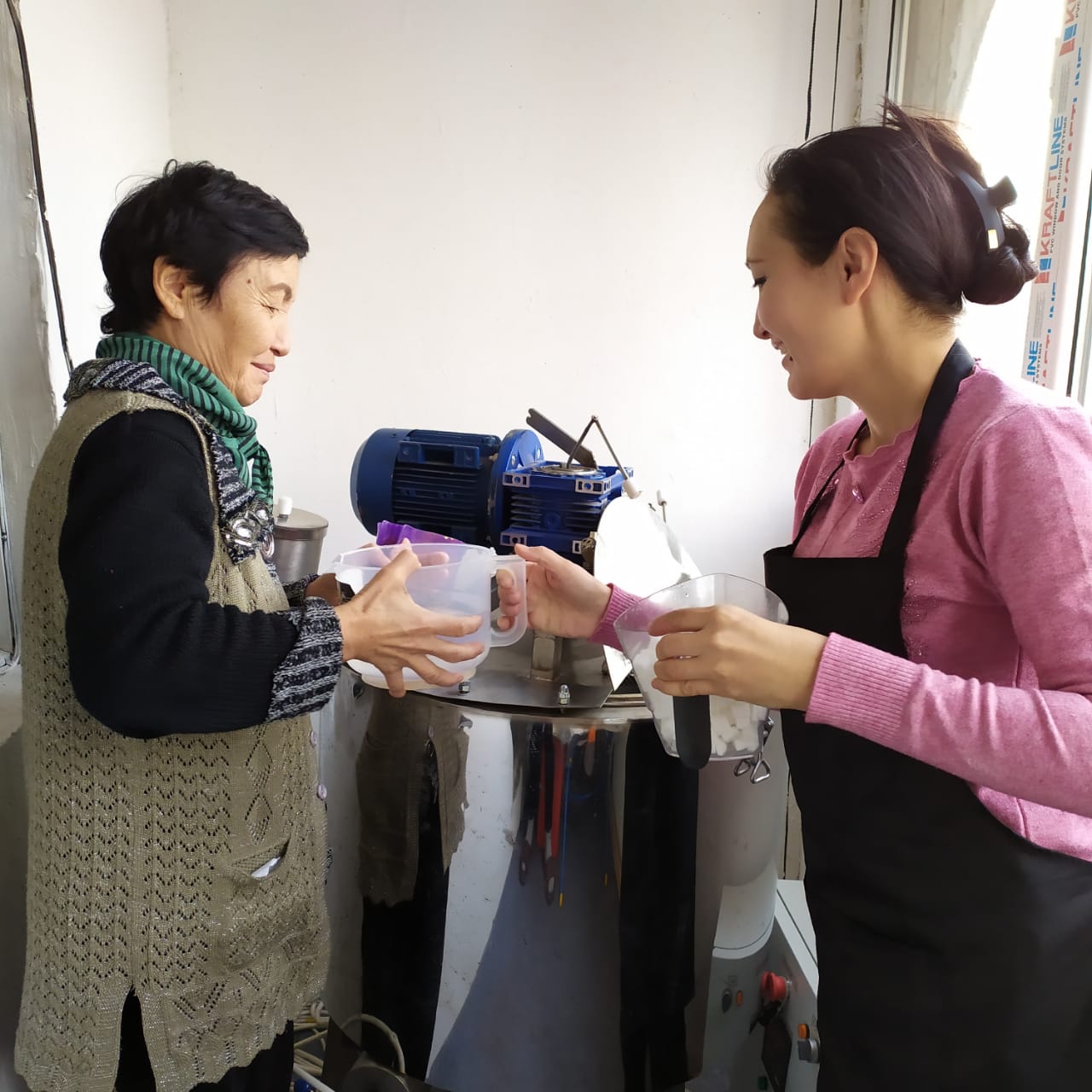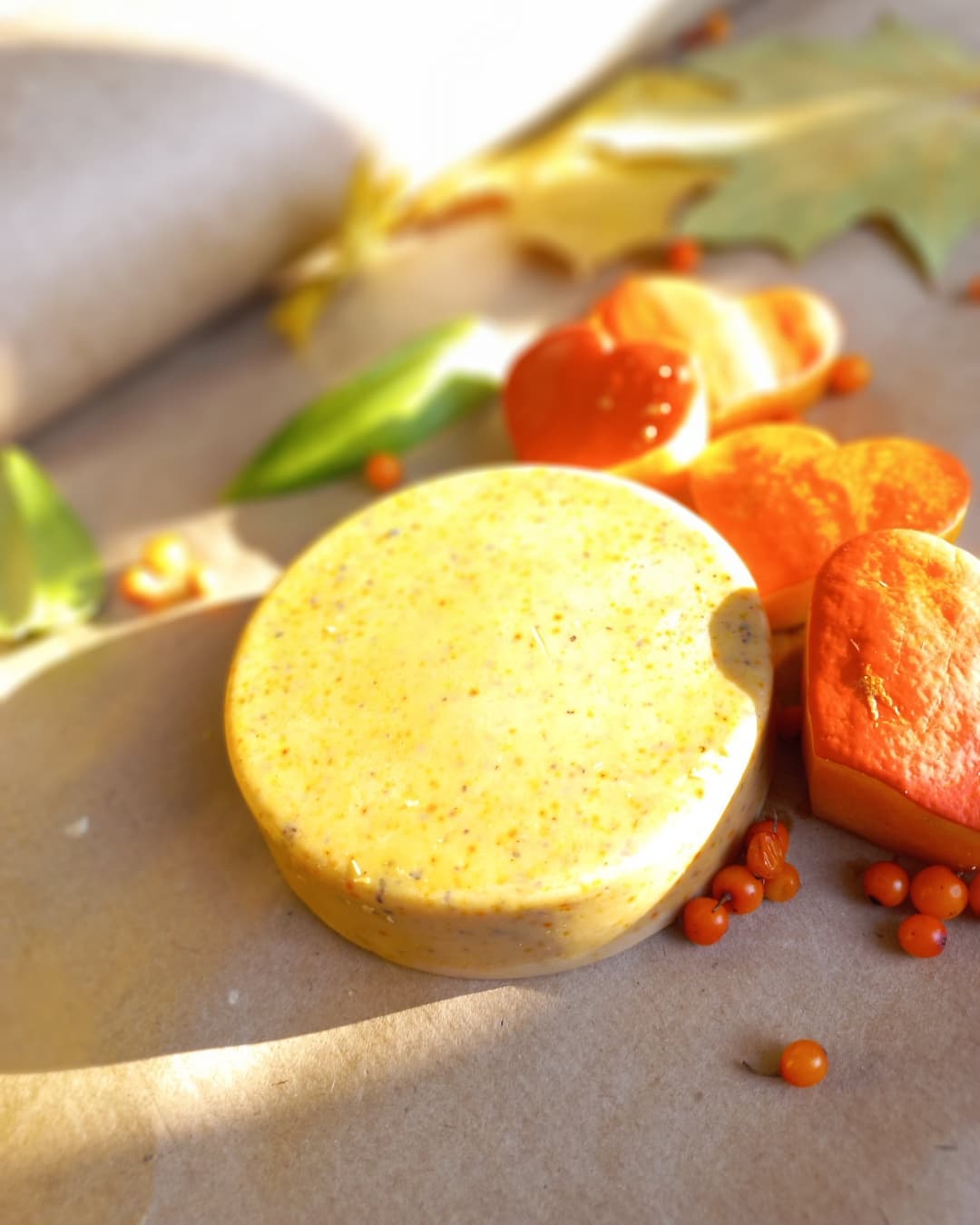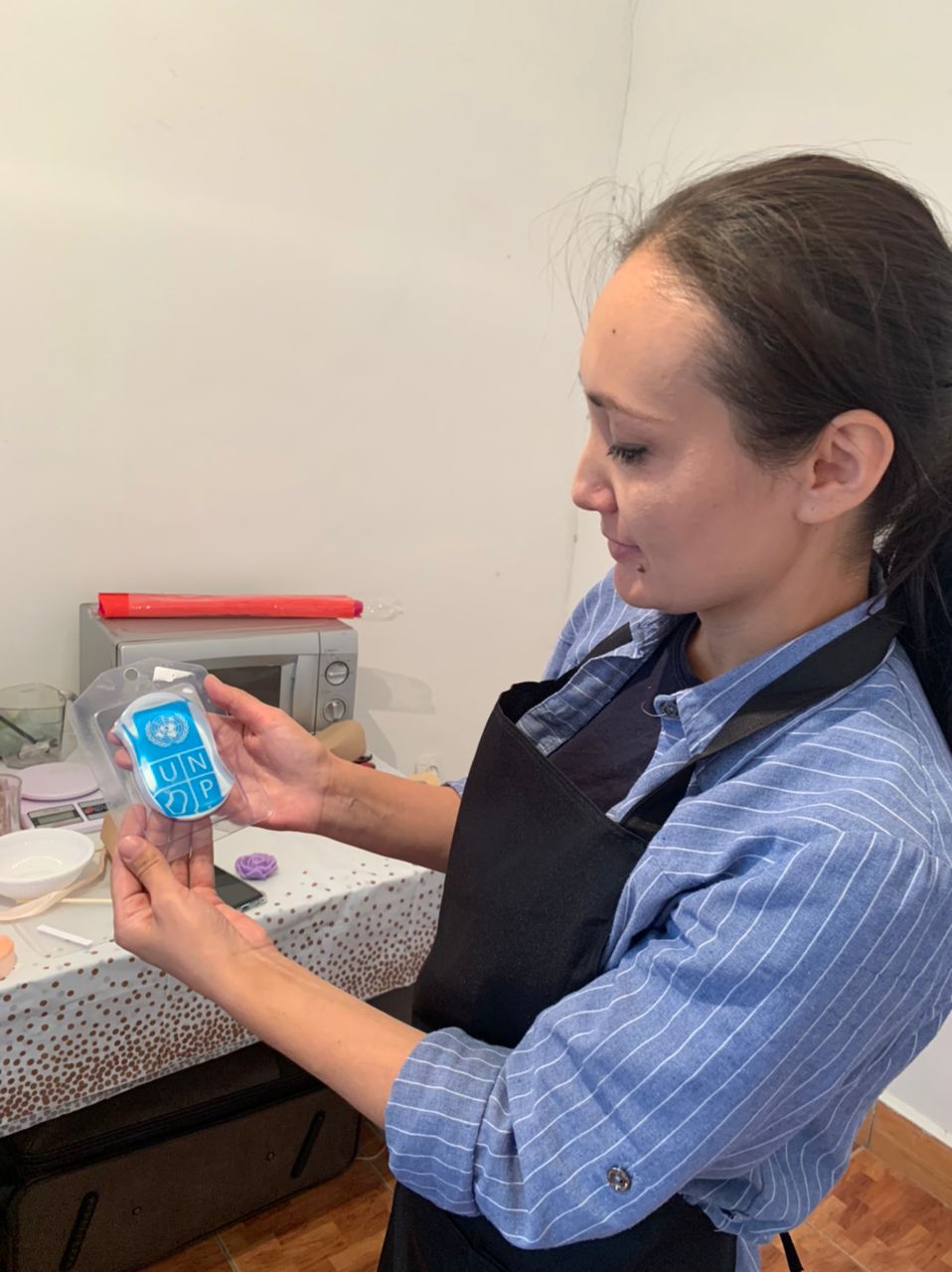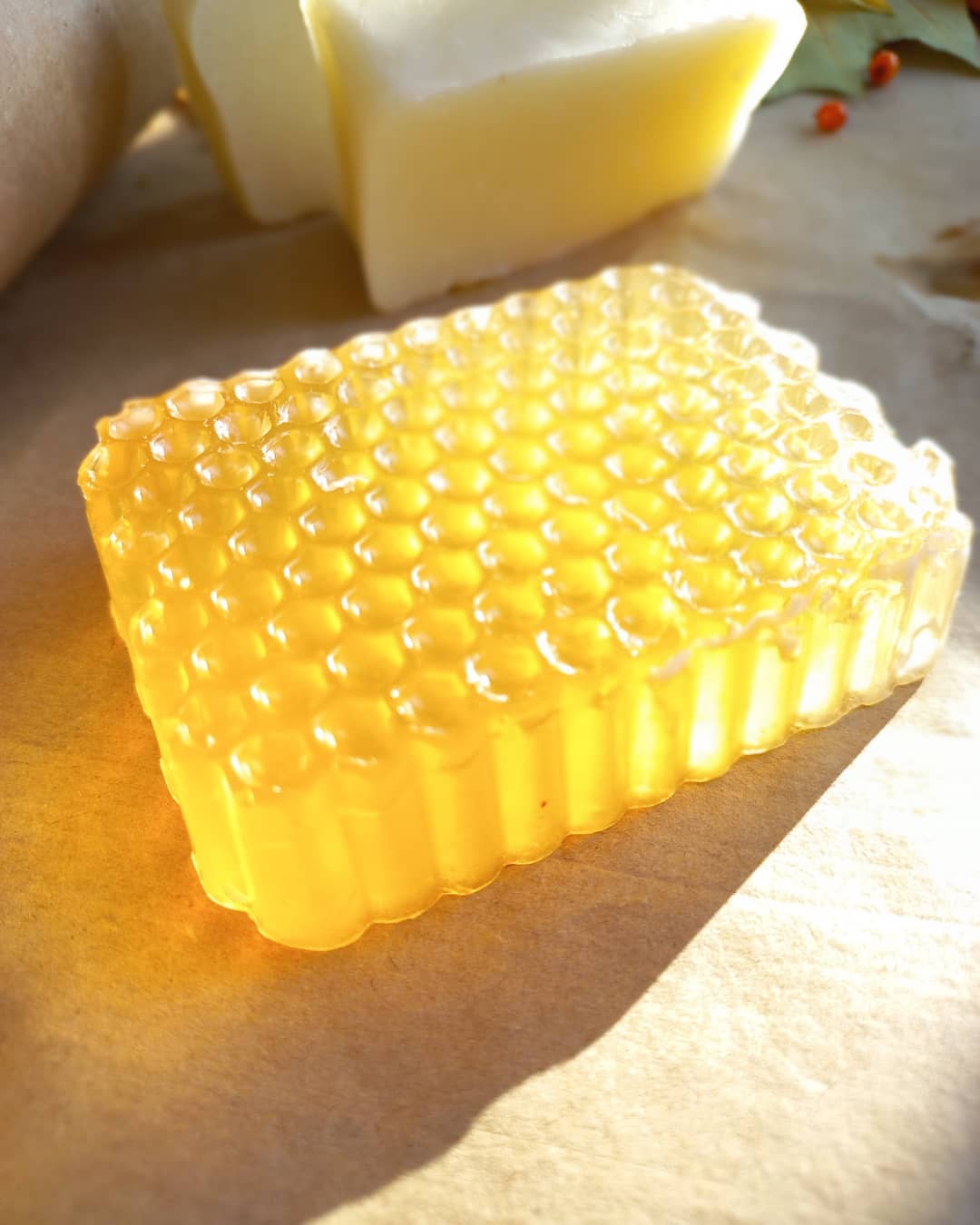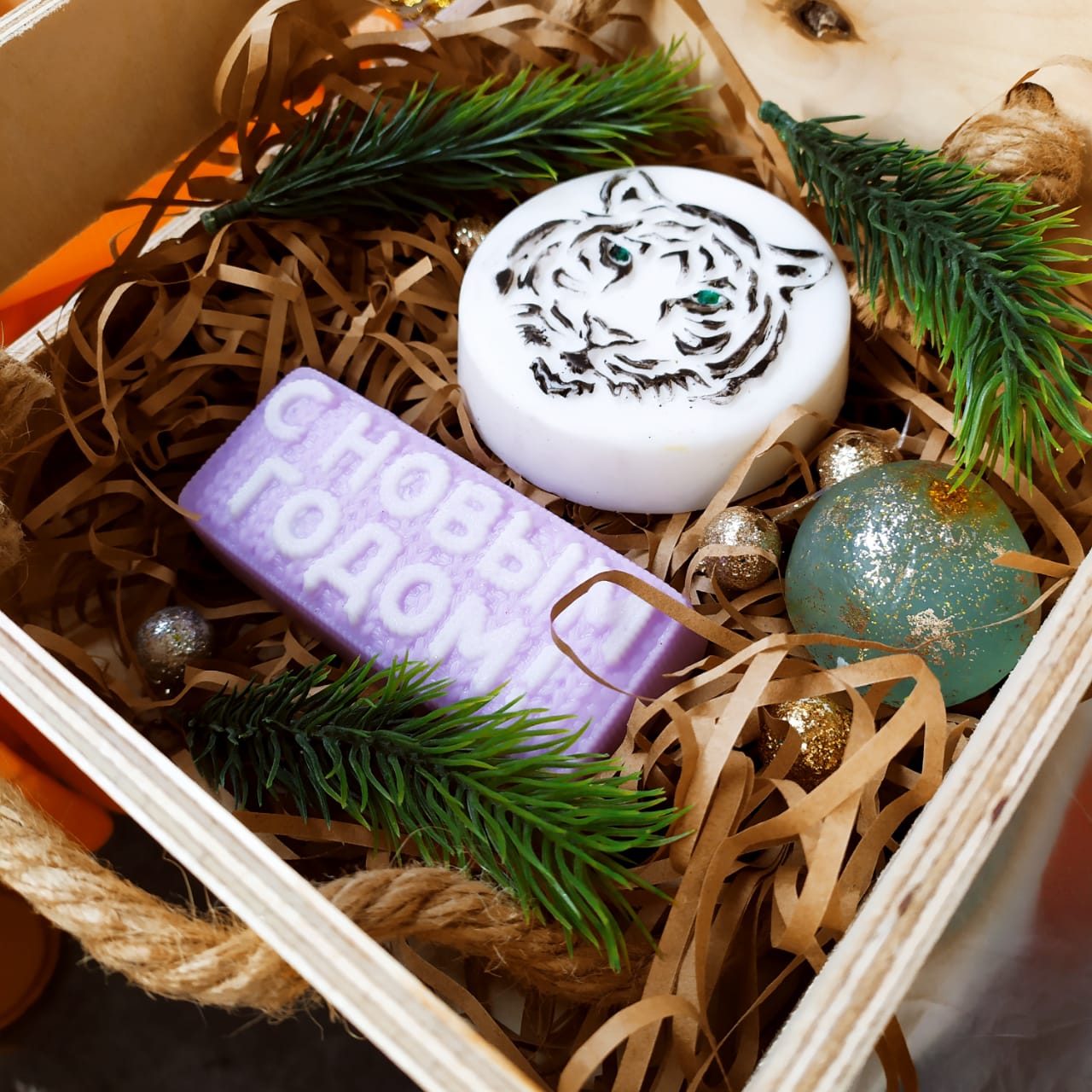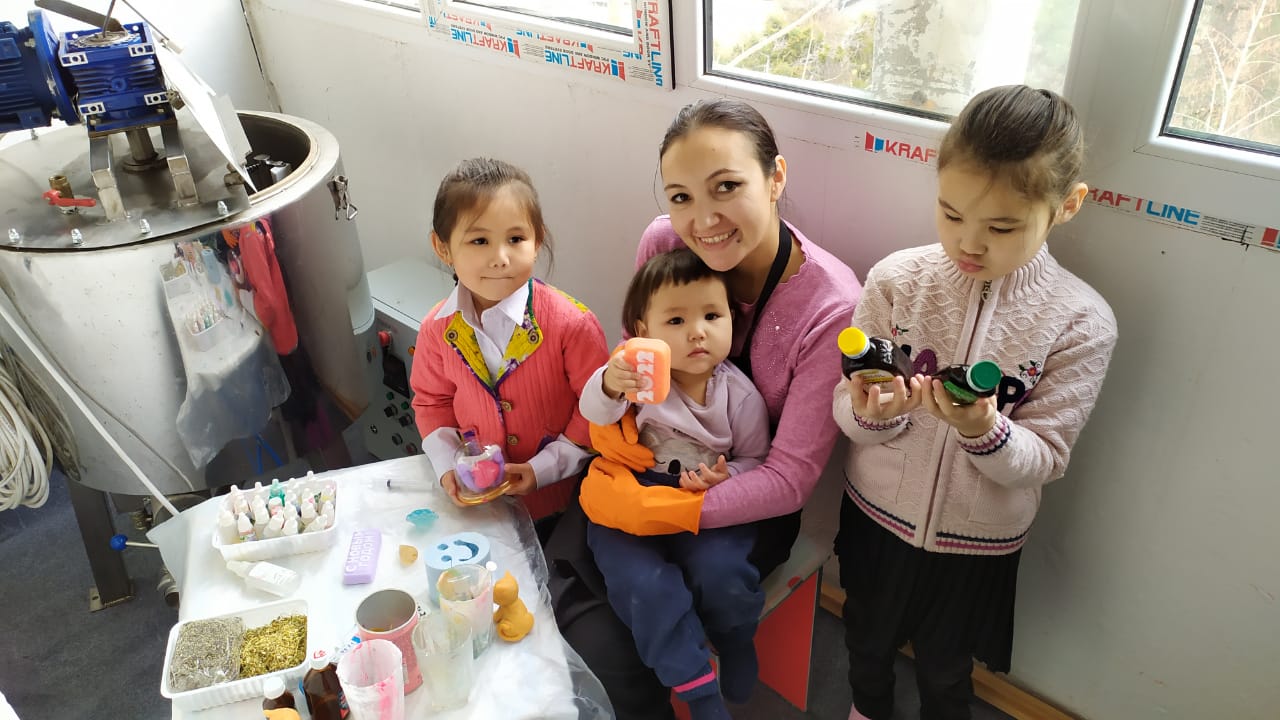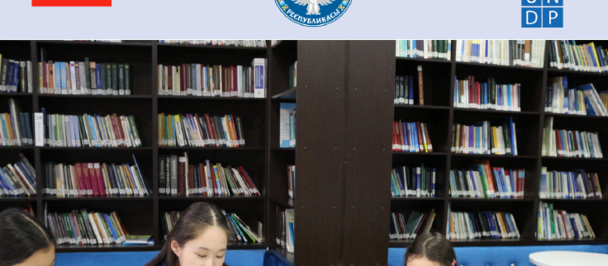Ainur Toktosunova in her workshop. / Photo: UNDP
Ainur Toktosunova became interested in soap making as a child when she watched her mother brew soap for the family. Those times, rare people heard about such a craft, they had to look for the right ingredients and adapt the baking molds for making soap. And this year, after applying for a UNDP small-grant and receiving a soap-boiling machine, this family hobby turned into a business. During the pandemic, Ainur faced difficulties in her main job and starting her own business was a huge step towards her financial stability.
“My mother is a chemist and used to make soap at home. It was always interesting for me to watch this process. When I grew up, I began to help her and learned the specifics of this work. First, we made soap for the family. Then relatives and friends joined in. They all liked it and were eager to buy my products for a gift or treatment. During the pandemic, they supported me this way in my difficult time. During the quarantine period, I decided with particular enthusiasm that our hobby could become our business,” says Ainur.
Ainur Toktosunova (right) and her mom (left) / Photo: UNDP
According to the young entrepreneur, in recent years she has read a lot of specialized literature on the art of soap making and says that interest in soap making has grown everywhere. She connects this with the popularity of natural cosmetics and the increasing demand for it.
“Almost all available cosmetics and especially soaps available in our local markets are made up of oil waste and parabens, which accumulate in the body and negatively affect health. Therefore, everything that "eco" is gaining momentum in popularity, "- says the young woman.
In her recipes for making soap, Ainur uses various natural ingredients without harmful chemical additives, collects herbs such as marigolds and thyme. Her favorite supplements are nettles and spruce cones. However, the most popular among buyers are products made of natural honey and buckthorn. Milk soap is more often bought for children.
“As for the molds, there are a lot of them in my soap maker’s workshop. These are not only ready-made but also author's forms of my own. Sometimes you see something interesting, you think it would be nice to do this in soap too. I prepared thoroughly for the upcoming New Year season and ordered special thematic forms from Russia." – says Ainur.
While participating in the project, she learned the basics of entrepreneurship and marketing. She bought a special printer for applying color inscriptions and images. She says that this is especially helpful when her products are ordered as a gift for various celebrations, weddings, or holidays. She believes that her educational background in economics and management will be an important support to running a successful business.
Now her workshop is in a rented building on the outskirts of the city of Balykchy, on the territory of a plant. As soon as the turnover picks up, she plans to move her small production closer to home.
“There are three of us working in the workshop: my mother, myself and I have another assistant. During the holiday season, it is very difficult to manage alone. This business is my baby-project, I am glad that my work brings me pleasure. If you don't do anything, nothing will work out. You can't sit back and wait for help or good luck from scratch." she says.
So, this is how a young rural woman turned her hobby into a source of income and moments of joy for her clients. In addition to her offspring soap project, Ainur has three children, three beautiful daughters: the oldest is 8 years old, 6-year-old and the youngest is just 1.8 months, for whom she tries to be the best guide in life and an excellent example to follow!
Providing the grant for Ainur became possible under the UNDP project “Implementing small grants to support the initiatives of young people at risk and community members in the development of their businesses, entrepreneurship and startups to prevent and respond to the COVID-19 crisis”. The project helped to implement 18 other youth startups in rural areas of Kyrgyzstan for more than 3 million KGS ($36 thousand).

 Locations
Locations